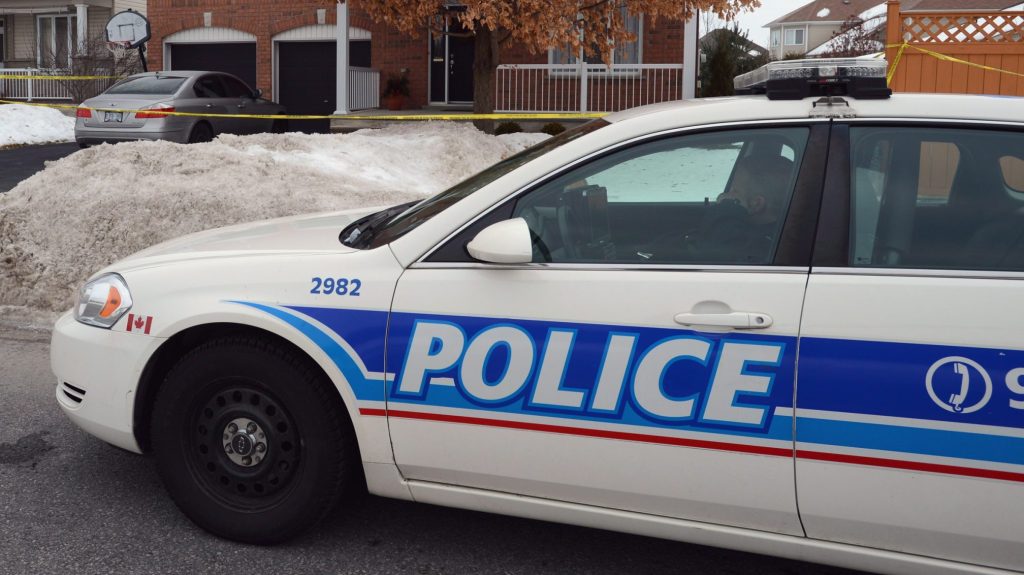Province-wide stay-at-home order, state of emergency to take effect Thursday
Posted Apr 7, 2021 08:28:00 PM.
Ontario is launching a state of emergency and a new stay-at-home order in yet another effort to control the third wave of the COVID-19 pandemic.
The Ford government says it’s implementing these changes in response to “the rapid increase in COVID-19 transmission, the threat on the province’s hospital system capacity, and the increasing risks posed to the public by COVID-19 variants.”
The province says the order will take effect at 12:01 a.m. Thursday, April 8.
This means all Ontario residents must stay at home, except for essential purposes such as going to the grocery store or pharmacy, accessing health care services (including getting vaccinated), for exercise close to home or for work that cannot be done remotely.
Premier Doug Ford says he waited to enforce these stringent restrictions until he saw ICU capacity reach critical levels.
“The COVID-19 situation is at a critical stage and we must act quickly and decisively to stay ahead of these deadly new variants,” said Ford.
“By imposing these strict new measures we will keep people safe while allowing our vaccination program to reach more people, starting with our high-risk population and identified hot spots. Although this is difficult, I urge everyone to follow these public health measures and together we will defeat this deadly virus.”
In addition to the province-wide stay-at-home order, the closure of non-essential retail and new restrictions for big box stores has been introduced by the government.
Discount and big box stores are limited strictly to in-person retail for sales of groceries, household cleaning supplies, pharmacy items (including pharmaceutical, health care, and personal care items, and pet care supplies) only.
In an effort to curb rising COVID-19 cases and ICU admissions, non-essential retail stores, such as malls, will be restricted to curbside pickup only.
The majority of non-essential retailers will only be allowed to operate for curbside pick-up and delivery between the hours of 7 a.m. and 8 p.m., with the delivery of goods to patrons permitted between 6 a.m. and 9 p.m.
Shopping Malls and Big Box Stores:
- Curbside pick-up and delivery with an appointment with one single designated location inside the shopping mall, and any number of designated locations outside the shopping mall, along with other restrictions.
- Discount and big box stores in-person retail sales to groceries, household cleaning supplies, pharmacy items (pharmaceutical, health care, and personal care items, and pet care supplies) only.
- Outdoor garden centres and plant nurseries, and indoor greenhouses that engage in sales to the public, to operate with a 25 percent capacity limit and a restriction on hours of operation.
Permitting the following stores to operate for in-person retail by appointment only and subject to a 25 percent capacity limit and restricting allowable hours of operation to 7:00 a.m. and 8:00 p.m.:
Retail:
- Safety supply stores;
- Businesses that primarily sell, rent or repair assistive devices, aids or supplies, mobility devices, aids or supplies or medical devices, aids or supplies
- Rental and leasing services including automobile, commercial and light industrial machinery and equipment rental;
- Optical stores that sell prescription eyewear to the public;
- Businesses that sell motor vehicles, boats, and other watercraft;
- Vehicle and equipment repair and essential maintenance and vehicle and equipment rental services;
- Retail stores operated by a telecommunications provider or service, which may only permit members of the public to enter the premises to purchase a cellphone or for repairs or technical support.
Ontario’s previous stay-at-home order went into effect on January 14 and was lifted nearly two months later on March 8.
The Ford government says schools and child care will remain open for in-person care and learning in public health regions where it is permitted, with strict safety measures in place.
However, the province says education workers who provide direct daily support to students with special education needs across the province, and all education workers in high-risk neighbourhoods in Toronto and Peel will be immediately eligible for a vaccine.
The Premier says mobile teams are being arranged to administer vaccines in high-risk congregate settings, residential buildings, faith-based locations, and locations occupied by large employers in hot spot neighbourhoods to individuals aged 18-and-up.
As vaccine supply allows, the province says its vaccine eligibility will expand to high-risk neighbourhoods in other hot spot regions, including York, Ottawa, Hamilton, Halton, and Durham.
The premier says he anticipates that 40 percent of all Ontarian adults will be vaccinated in the next four weeks as supply ramps up.
The government will also extend the booking for COVID-19 vaccination appointments to more age groups through its provincial booking system, specifically for public health regions with high-risk communities, starting Friday.
Booking eligibility across Ontario will be extended to include people aged 50+ for COVID-19 vaccination appointments at mass immunization clinics in high-risk areas as identified by postal code, using the provincial booking system.
The decision comes after medical officers of health in Toronto, Peel and Ottawa called on the government to ramp up public health measures, including a stay-at-home order, saying the recently imposed shutdown does not go far enough to curb the surge of COVID-19 cases in the province.
Dr. Eileen da Villa, Dr. Lawrence Loh, and Dr. Vera Etches sent a letter to Dr. David Williams, the province’s top doctor on Tuesday, saying the move was “necessary to prevent and mitigate large scale morbidity and mortality and irreparable strain on the health-care system.”
Ontario health officials have openly criticized the Ford government’s handling of pandemic restrictions, particularly of late, as ICU admissions rapidly increase along with daily COVID-19 cases disproportionately affecting younger aged residents.
During a media briefing, Dr. Loh said Wednesday the variants of concerns have “won this round” in the province.
“Even if we vaccinated everyone in Peel today, we would still not see changes in our trends for over four weeks,” he said. “That means the second thing that we all need to do right now is to stay home as much as possible.”
Ontario’s health minister said Wednesday that Ontario hit a new record high number for single-day vaccinations with 104,382 doses administered the previous day.
“We’re getting needles into arms as quickly and safely as possible and we continue to ramp up capacity,” Minister Christine Elliott said on social media. “Vaccines remain our best defense in the fight against [COVID-19]. Please sign up when it’s your turn.”










